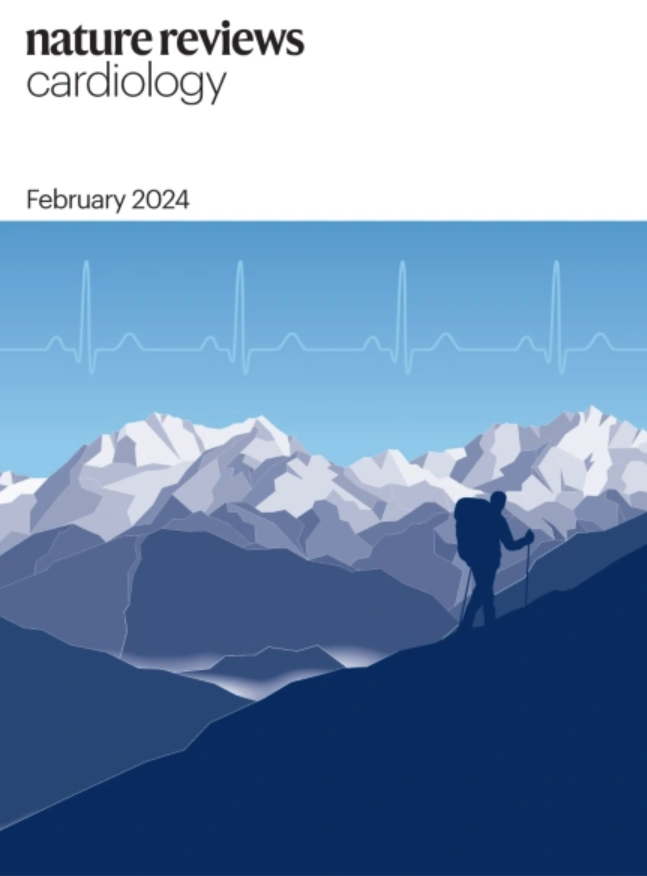Stress and cardiovascular disease: an update
IF 41.7
1区 医学
Q1 CARDIAC & CARDIOVASCULAR SYSTEMS
引用次数: 0
Abstract
Psychological stress is generally accepted to be associated with an increased risk of cardiovascular disease (CVD), but results have varied in terms of how stress is measured and the strength of the association. Additionally, the mechanisms and potential causal links have remained speculative despite decades of research. The physiological responses to stress are well characterized, but their contribution to the development and progression of CVD has received little attention in empirical studies. Evidence suggests that physiological responses to stress have a fundamental role in the risk of CVD and that haemodynamic, vascular and immune perturbations triggered by stress are especially implicated. Stress response physiology is regulated by the corticolimbic regions of the brain, which have outputs to the autonomic nervous system. Variation in these regulatory pathways might explain interindividual differences in vulnerability to stress. Dynamic perturbations in autonomic, immune and vascular functions are probably also implicated as CVD risk mechanisms of chronic, recurring and cumulative stressful exposures, but more data are needed from prospective studies and from assessments in real-life situations. Psychological assessment remains insufficiently recognized in clinical care and prevention. Although stress-reduction interventions might mitigate perceived stress levels and potentially reduce cardiovascular risk, more data from randomized trials are needed. Physiological responses to stress are thought to increase the risk of cardiovascular disease via haemodynamic, vascular and immune perturbations. In this Review, Vaccarino and Bremner focus on issues with the measurement of psychological stress and the underlying pathobiology connecting stress to the risk of cardiovascular disease.


压力与心血管疾病:最新进展
人们普遍认为,心理压力与心血管疾病(CVD)风险的增加有关,但在压力的测量方法和关联强度方面,结果却各不相同。此外,尽管进行了数十年的研究,但其机制和潜在的因果关系仍是猜测性的。人们对压力的生理反应已经有了很好的认识,但实证研究却很少关注这些反应对心血管疾病的发生和发展所起的作用。有证据表明,压力的生理反应在心血管疾病的风险中起着根本性的作用,而压力引发的血流动力学、血管和免疫扰动尤其与此有关。应激反应生理学受大脑皮质边缘区域的调节,该区域可输出至自主神经系统。这些调节途径的差异可能解释了个体间对压力的脆弱性差异。自律神经、免疫和血管功能的动态扰动很可能也与长期、反复和累积的压力暴露有关,成为心血管疾病的风险机制,但还需要从前瞻性研究和现实生活中的评估中获得更多数据。心理评估在临床护理和预防中仍未得到充分认可。尽管减压干预措施可能会减轻感知到的压力水平,并有可能降低心血管风险,但还需要更多来自随机试验的数据。
本文章由计算机程序翻译,如有差异,请以英文原文为准。
求助全文
约1分钟内获得全文
求助全文
来源期刊

Nature Reviews Cardiology
医学-心血管系统
CiteScore
53.10
自引率
0.60%
发文量
143
审稿时长
6-12 weeks
期刊介绍:
Nature Reviews Cardiology aims to be the go-to source for reviews and commentaries in the scientific and clinical communities it serves. Focused on providing authoritative and accessible articles enriched with clear figures and tables, the journal strives to offer unparalleled service to authors, referees, and readers, maximizing the usefulness and impact of each publication. It covers a broad range of content types, including Research Highlights, Comments, News & Views, Reviews, Consensus Statements, and Perspectives, catering to practising cardiologists and cardiovascular research scientists. Authored by renowned clinicians, academics, and researchers, the content targets readers in the biological and medical sciences, ensuring accessibility across various disciplines. In-depth Reviews offer up-to-date information, while Consensus Statements provide evidence-based recommendations. Perspectives and News & Views present topical discussions and opinions, and the Research Highlights section filters primary research from cardiovascular and general medical journals. As part of the Nature Reviews portfolio, Nature Reviews Cardiology maintains high standards and a wide reach.
 求助内容:
求助内容: 应助结果提醒方式:
应助结果提醒方式:


